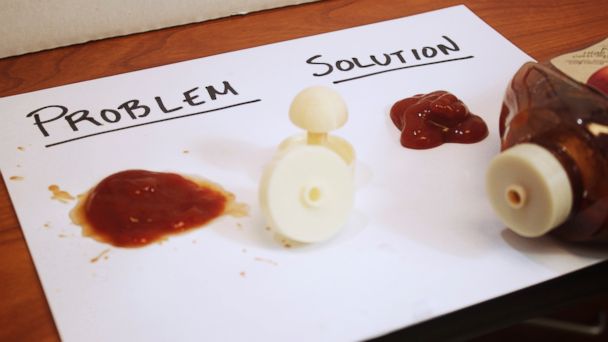What Can Teachers and Students Teach Us About Project Based Learning?
In order to answer this question, I was required to watch a few videos and read some articles based around project based learning (PBL). I even did some research on my own to answer this question. I found that PBL is something more teachers should implement in order for students to get the most out of their learning experience. It allows them to be creative and take their learning into their own hands. This creates a classroom environment full of engaged students. I definitely will take the research I have done for this blog post and apply it to my teaching.

To begin with, I will talk about the video What motivates students?. This video was helpful in giving some insight into what motivates students and the type of rewards they enjoy. It's important for a teacher to know this in order to get students engaged in their learning and to motivate them to do their best. One student said that he found praise from the teacher to be motivating. A few students were motivated by the fact that they had to do well in school in order to achieve their dreams and goals. I think that PBL could make a difference in how these students learn by letting them do something fun and creative. This could make it easier for them to do well in school and maybe even motivate them to find a new chance to learn in every experience.

Of course it's a good idea to look at what project based learning is not in order to understand what it is. I did my own research and came across What Project Based Learning Isn't. I learned from this video that a lot of teachers think they are implementing PBL, but they are really implementing project oriented learning. Project oriented learning is not the same as project based learning. Project oriented learning involves the teacher going through the semester lecturing, giving assignments, or even showing movies on the material they are covering. Then, they assign a project for the students to do at the end of the semester that requires them to use what they learned over the semester. This is different because the students weren't really taking control of their own learning throughout the semester. They were taught the material and then did a project based on what they were taught instead of doing their own research. I think this is very important for teachers to recognize so that they can make sure they are actually implementing PBL.
I know I was a little confused on what exactly goes on in project based learning until I read the article Seven Essentials for Project-Based Learning. This article helped me recognize the essentials of a good PBL plan.
These are the seven essentials every teacher should abide by:
- A Need to Know- This is like a hook. This is what you should use to get the students interested.
- A Driving Question- This needs to be a complex question that involves critical thinking and should guide the project. Students should be able to answer this question with their project.
- Student Voice and Choice- This means that students should be able to have choices in their project in order to make it meaningful for them.
- 21st Century Skills- This project should build on skills such as collaboration, communication, and critical thinking.
- Inquiry and Innovation- Students should be able to start creating their own questions and innovative answers to these new questions.
- Feedback and Revision- Students should use rubrics and peer feedback to revise their work. It's important for them to realize that something great doesn't just happen the first time.
- A Publicly Presented Product- Students should present their work to an audience in order to care
- more about the quality of their project.
Finally, I read an article about an invention created by two high school students through PBL. Two Students Solve the Problem of Watery Ketchup by Designing a New Cap was a project created through the Project Lead the Way Program. The students had to start with something that was relevant to them. They typically use the phrase "it really bugs me when" to start off this project. So, high school seniors Tyler Richards and Jonathan Thompson decided to do a project based on a mutual love of ketchup. They were bothered by the watery ketchup that first comes out of the ketchup bottle. So they looked for patents that could solve the problem, but couldn't find any that helped. That forced them to come up with their own innovative design to solve the problem. After sketching out the design, they brought it to life using a 3-D printer. They found this project to be enjoyable because it was something that was meaningful to them which is an essential to a PBL plan. I think teachers can truly see the effects PBL has on students through this example.

Rebekah, you did a great job on this post and covered the material thoroughly. I also learned quite a lot from this assignment about PBL. Keep up the good work!
ReplyDelete